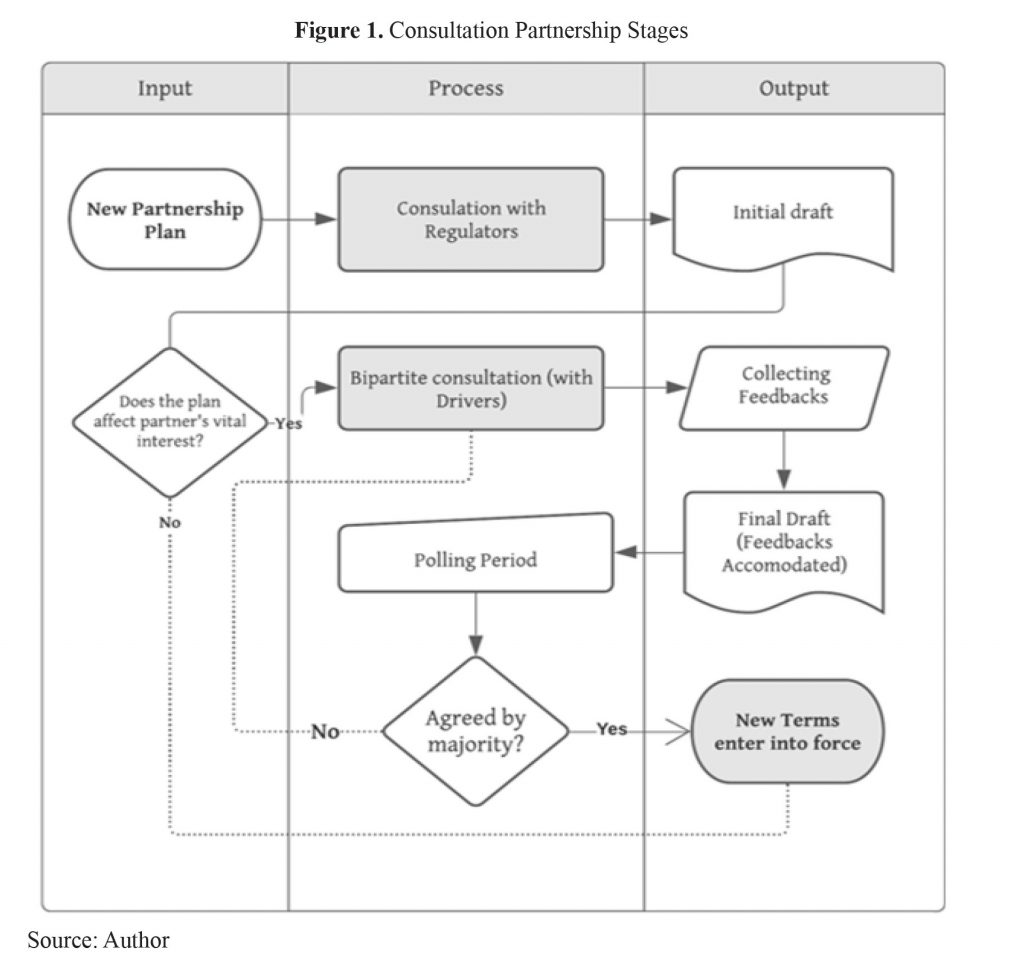
The absence of gig workers’ right to collective bargaining affects the human rights condition of the app drivers. Previous studies roughly fall into two categories: either employing the drivers as a solution or opting for law-making intervention. This paper fills the gap using a new concept based on the United Nations Guiding Principle of Business and Human Rights by exploring the businesses’ social responsibility realm. This qualitative socio-legal research finds that: (1) the clauses of the standardized partnership agreements contain unequal risks allocations, putting the independent contractors in a lose-lose situation; (2) the inability to determine the substantial domain of the contract marginalizes the partners from exercising the related social and economic rights; and (3) the pre-existed structural problems take part as a coercive forces to the partners’ free will to consent, resulting in a doubtful partnership contract validity. As a solution, the insertion of meaningful partnership consultation, a concept adopted from collective bargaining concept in labor relations, enables better mutual consent arrangement and serves as a preemptive remedy to the human rights impact.Keywords: UNGP; Ride-Hailing; Collective Bargaining; Access to Remedy.
Penulis: Auditya Saputra
Sumber: https://e-journal.unair.ac.id/YDK/article/view/34599/17441
Tanggal: 14 Januari 2022
